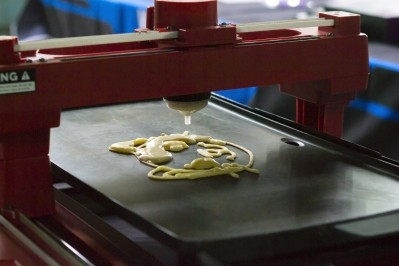Why pollution is the next big food and beverage opportunity

Health and sustainability aren’t simply empty slogans, believes trend-forecasting agency Stylus. Wellness and sustainability became heightened and interlinked concerns during the pandemic, the trends forecaster believes. So much so that these drifts now present material business risks for the food and beverage sector.
Never before has the footprint of food and its impact on planetary and human health attracted such intensive scrutiny from companies, consumers and regulators. Businesses failing to place climate-smart and positive health strategies at the heart of decision-making risk serious consequences, from reputational damage to long-term supply chain insecurity.
“Consumer needs and desires have evolved rapidly since the pandemic,” Mandy Saven, Director of Consumer Lifestyle at Stylus told FoodNavigator. That presents the industry challenges and opportunities. Innovation is more crucial than ever for brands that want to remain relevant, she believes.
“People have been prompted to invest in more healthy and nutritious food to boost immunity and ensure they’re in peak condition to stave off illness,” explained the trends expert. “Overall, we saw people taking a more strategic and even creative approach to personal health management. Our sense of permanence has been thrown off, which has also led to a more considered approach to consumption and the impact it has on the world around us.”
Consequently, mindful eating has emerged as a key theme over the last year, she told us, and demand for wellness products that were previously perceived by some as niche - think kombucha, kimchi and kefir - have hit the roof thanks to their perceived health benefits, such as detoxification, gut health and immune support.
Stylus also noted wind in the sails of the low-to-no drinking trend. “Kombucha has even become a popular choice among sober-curious consumers particularly and those looking for a healthier 0%ABV alternative to beer, wine and cider,” said Saven.
Functional ingredients and mood-modulating products have boomed too. “After prolonged periods of uncertainty and emotional upheaval, consumers are looking beyond conventional medicine and using food as a potent tool for physical and mental wellbeing,” she noted. “Natural ways to alleviate symptoms of stress, prompt feelings of calm, supercharge brainpower and improve quality of sleep are beginning to take centre stage.”
By way of illustration, PepsiCo's R&D Fellows programme has pointed to the potential of ingredients like ginger, elderberry, echinacea, vitamin C and zinc. Sales of the stress-relieving antioxidant elderberry grew by triple digits in the US in the first half of 2020, compared with 2019. Likewise, global interest in functional mushrooms is up 64% since 2019: a strategy which “checks the wellness boxes whilst paving the way for sizeable commercial gains,” observed Saven.
These prolonged periods of uncertainty and emotional upheaval have also fuelled a focus on biodiversity and planetary health, Saven noted. The pandemic has “turbocharged plant-based eating in line with growing concerns over health and climate change," she observed.
This ethics-driven sentiment is translating into product and packaging with carbon-footprint labelling, commitments to soil health and climate-positive production processes. “It will be interesting to see how new labelling and packaging standards reflect such demands,” Saven said.
![Mandy Saven_Stylus[72]](/var/wrbm_gb_food_pharma/storage/images/_aliases/wrbm_large/media/images/mandy-saven_stylus-72/13061699-1-eng-GB/Mandy-Saven_Stylus-72.jpg)
How brands are responding to the evolving landscape
Intuitive grocery and food tech brands are responding to consumer interest in health and climate by stepping in with next-generation solutions that help to nudge eaters in a healthful and eco-minded direction.
Take carbon labelling, which is becoming a popular way for brands to showcase their suitability credentials to conscious consumers.
Quorn was one of the first major brands to introduce carbon labelling in June 2020, having been working with The Carbon Trust since 2012 to measure the emissions of its operations. It’s also been embraced by Upfield, Nestle, and HelloFresh among others.
Going one step further, Coop supermarket in Denmark has introduced an app enabling shoppers to calculate the environmental impact of their shopping cart as they go.
“Carbon labelling is becoming an expectation, so helping consumers track their eco-record via an app could be the future,” stated Saven. “But the imperative extends beyond emissions – brands need to be mindful of their full footprint, including water usage.”
F&B trends of the future
Consumers will continue to take a more proactive approach to health, convenience, and planet-friendly eating as they move into 2022, predicted Saven.
“It is an incredibly exciting time for food and drink fuelled by evolving attitudes and innovation,” she told us. “Taste and flavour will dominate industry and consumer conversations, as brands find fresh ways to stretch and challenge traditional flavour cues, profiles, and formats, while ticking the wellness and sustainability boxes.”
It’s also likely that 2022 “will be the year that people urgently start to adapt their palates to focus on biodiversity and support planetary needs”.
She pointed to books like Dan Saladino’s 'Eating to Extinction: The World’s Rarest Foods & Why We Need to Save Them', which ‘captures the urgency and costs of heading towards a future that is less nutritionally diverse – for both our health and planet’. Less common ingredients will start to make regular appearances in our diets, as we all attempt to become more nutritionally diverse, believes Saven.
“Health and sustainability aren’t simply buzzwords,” she added. “If brands want to stay relevant, they need to keep up the pace with these evolving trends and challenge their creativity through a mindful lens.”

























